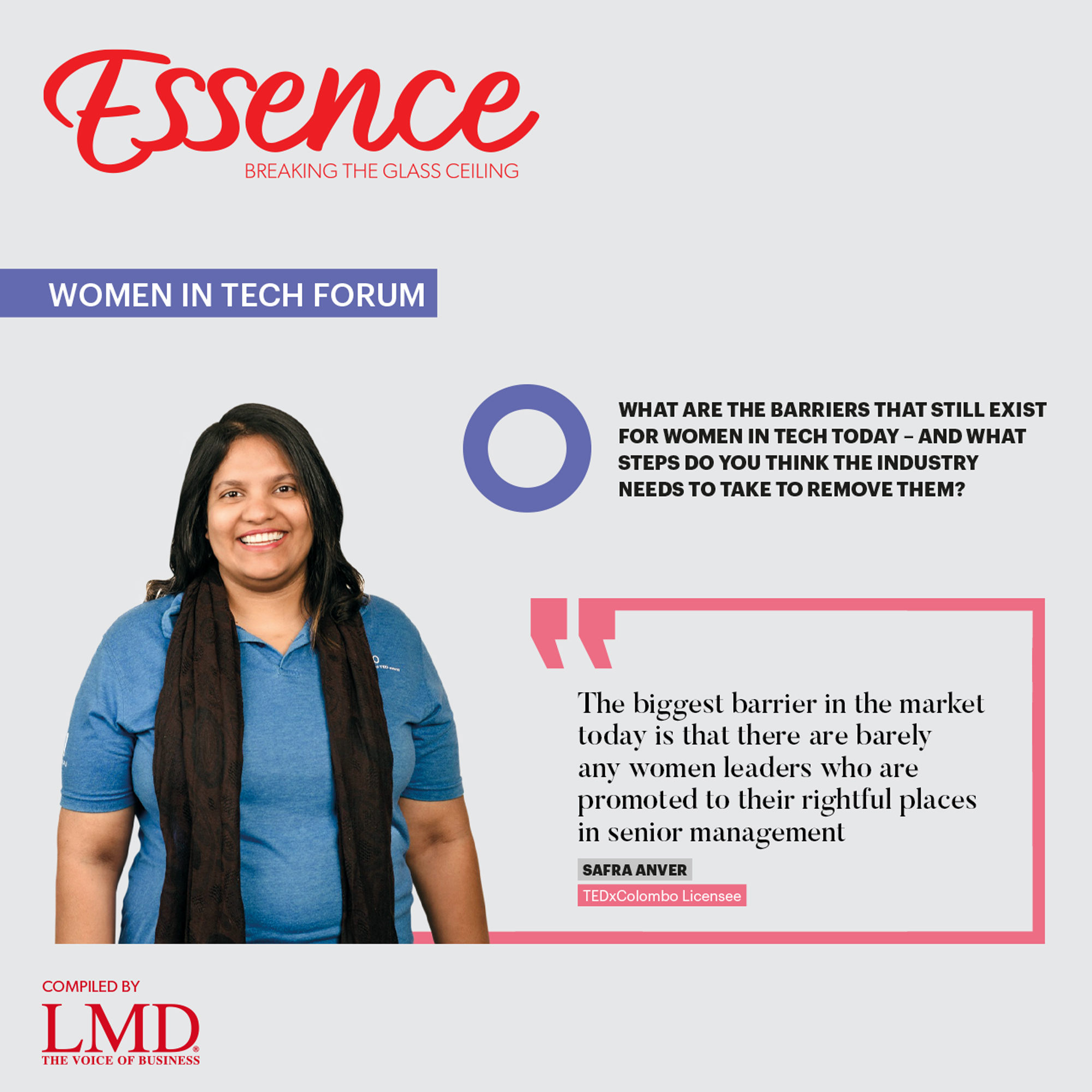WOMEN AT WORK
The Other Half
Melanie Kanaka draws attention to the plight of half the working population
 As the CIMA Global Council’s first Asian lady – and more importantly, co-opted for a second term on the council from outside of the UK – Melanie Kanaka has no doubt encountered her fair share of challenges to be accepted by the international professional fraternity.
As the CIMA Global Council’s first Asian lady – and more importantly, co-opted for a second term on the council from outside of the UK – Melanie Kanaka has no doubt encountered her fair share of challenges to be accepted by the international professional fraternity.
Currently the Head of Finance and Administration at the World Bank in Sri Lanka and Maldives, she discloses that in her journey, “I too have had my fair share of setbacks. There will definitely be setbacks in anything one embarks on – in the workplace or in nurturing a successful business – but what’s important is to do the right thing and press on knowing that the ‘comeback will always be greater than the setback’.”
“Sri Lankan businesswomen have the required passion, perseverance, resilience, grit and tenacity to succeed, given the right platforms to dive off from,” she asserts – and indeed, her own example is a case in point.
Kanaka explains: “Male or female, there are no quick fixes to reaching any goal – rather, it’s sheer commitment, dedication, persistent hard work and focussed passion that generate the outcomes that enable one to rise to the top.”
She cites a number of barriers that deter greater participation of women in the workplace – viz. a lack of equal opportunity and access to value-added jobs; vastly disproportionate gender pay structures; limited access to finance for women entrepreneurs, which is compounded in the case of startups; and the cultural and social attitudes towards the traditional role of women.
Other restricting factors include traditional divisions of labour along gender lines with specific roles being segregated for men and women; gender segmentation of labour; and less sustainable economic opportunities for women.
There’s also a lack of opportunity to equip women with the necessary skills to succeed and develop in the workplace – including boardroom representation – and insufficient and poor care infrastructure. And the lack of safe public transport and childcare facilities to support the female workforce means they’re unable to account for their fair share of workplace productivity.
Looking at this from a human resources (HR) perspective, Kanaka posits: “Firstly, there should be legislative changes in support of the female workforce to act as a stimulus and an encouragement – i.e. to motivate women to either remain in the workforce or rejoin it after taking time off to raise a family.”
She continues: “Secondly, variations to the working day in terms of flexible time and home-based work mechanisms can certainly help. Equal pay and opportunities for female workforce labour participation is important too. Very often, we come across gender disparity in terms of pay scales.
“Thirdly, organisational and societal culture has to change in order to ensure that women too are given a fair chance to skill themselves, develop, grow, achieve and shine in the workplace” Kanaka adds.
She maintains that “women bring a number of diverse facets to the workplace – namely resilience, tenacity, passion and drive. And once women engage in work that they like to do, they bring the key elements of passion and perseverance into their work.
“Women’s strike levels of emotional intelligence are very different to those of their male counterparts. They’re a breed that is intuitive; and they have the ability to visualise the future setup of an organisation,” she opines.
Melanie Kanaka’s vision for local businesswomen is to stretch beyond the shores of Sri Lanka and leave a mark in the international arena: “The experience or opportunities for women to explore, and work in leadership roles, is both critical and important. It is by blazing through different opportunities that one develops and grows.”
She sums up: “To deprive women of such opportunities is to hold back on half the working population, which will lead to lacklustre economic development and stalled economic prosperity for Sri Lanka.”





